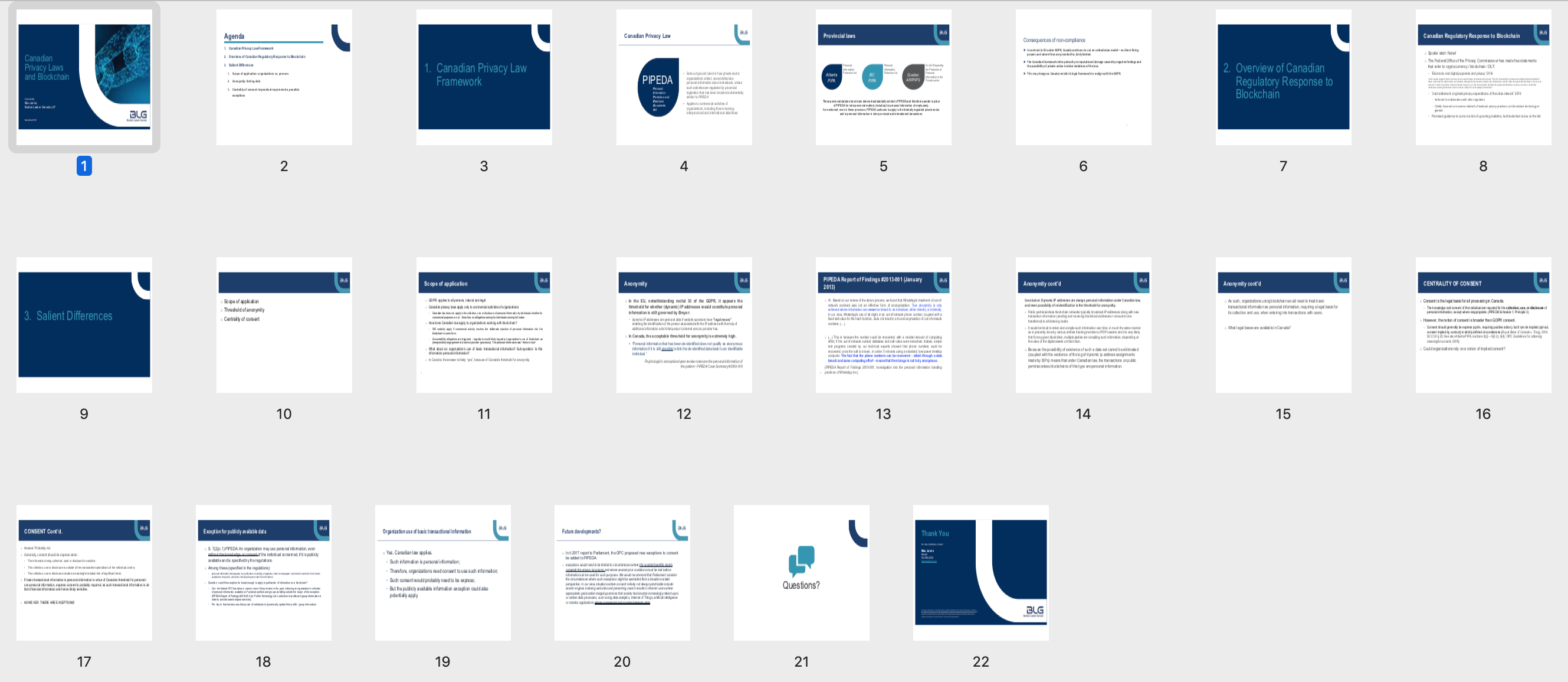Max Jarvie
 Max Jarvie is a lawyer practicing in the Privacy and Data Protection Group of Borden Ladner Gervais LLP. He advises and assists clients on a wide range of issues, including privacy and anti-spam, distributed ledger technology (blockchain), information security, licensing, consumer protection, and corporate commercial matters. During his legal studies, Max worked as an editor for both the McGill Law Journal and the McGill Journal of Law and Health. He has served as a law clerk at the Supreme Court of Israel for Justice Hanan Melcer and at the Court of Appeal for Quebec for the Honourable Nicholas Kasirer.
Max Jarvie is a lawyer practicing in the Privacy and Data Protection Group of Borden Ladner Gervais LLP. He advises and assists clients on a wide range of issues, including privacy and anti-spam, distributed ledger technology (blockchain), information security, licensing, consumer protection, and corporate commercial matters. During his legal studies, Max worked as an editor for both the McGill Law Journal and the McGill Journal of Law and Health. He has served as a law clerk at the Supreme Court of Israel for Justice Hanan Melcer and at the Court of Appeal for Quebec for the Honourable Nicholas Kasirer.
Before studying law, Max studied philosophy at the University of Toronto, the London School of Economics and McGill University, obtaining a Ph.D in 2005. Max also worked in information technology as a project manager and departmental director at a number of private companies and public institutions.
Max is a frequent speaker on matters arising at the intersection of technology and law, including artificial intelligence, blockchain, and smart cities, and has taught a course module on the subject of tax implications of cryptocurrencies at the McGill University Faculty of Law. Max is also the author of several publications, most recently a scholarly article examining the effects of intellectual property law on food security, a book chapter concerning the legal framework governing domain names contributed to the Practical Guide to E-Commerce and Internet Law, and two book chapters, one concerning privacy laws and artificial intelligence and the other concerning privacy laws and distributed ledger technologies, contributed to Managing Privacy in a Connected World (forthcoming in 2020).


